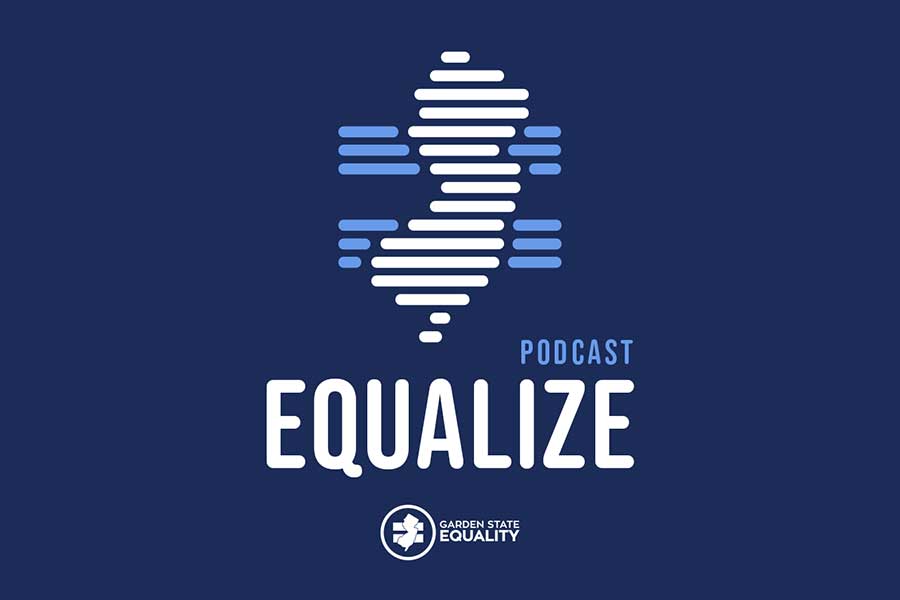Garden State Equality, the largest LGBTQ advocacy and education organization in New Jersey, has launched “Equalize,” a monthly podcast highlighting the state’s queer movers and shakers.
The 30-minute episodes will center on LGBTQ activists involved in the group’s latest initiatives. The audio project is meant to help the organization better connect with its audience about “the nitty-gritty details of the work Garden State Equality is doing,” said Jon Oliveira, Garden State Equality’s director of communications and membership who is stepping into the podcast’s producer role.
“We have expanded in a post-marriage equality world where lots of statewide LGBTQ organizations are shutting down, closing their doors, or shrinking, laying off staff,” he added. “Garden State Equality is still growing and thriving, so … we’re looking for new avenues for us to convey to our membership and the public the great work that we’re doing.”
In the podcast’s debut Sept. 10 episode, host J Gonzalez-Goldstein, a queer trans woman, spoke with New Jersey high schooler Breanna Georges, who found herself at the center of a national controversy this summer when her LGBTQ-positive mural was covered up by administrators at her school, which rents the facility from a Catholic church. Georges’ art project depicted a rainbow heart and male and female gender symbols.
Following the debacle, Bergen Arts and Science Charter High School, in Hackensack, signed on as one of 12 schools piloting Garden State Equality’s LGBTQ-inclusive curriculum at the start of 2020.
“I walked in one day and my partner, who was working on the mural with me, had told me that the church had a problem with it,” Georges recalled on the “Equalize” episode. “No one else’s, just mine, for obvious reasons.”
Gonzalez-Goldstein continued by asking Georges about what happened with the mural and how she leapt into activism during, and after, the controversy. The “Equalize” host rounded out the episode by speaking with Ashley Chiappano, safe schools and community outreach manager at Garden State Equality, who is managing the development of the LGBTQ-inclusive school curriculum.
“We are currently in the process with a team of 10 curriculum writers writing LGBTQ-inclusive curriculum across all subject areas,” Chiappano said. “…LGBTQ-specific history is important, but the truth of the matter is that only talking about the history of the movement is not enough.”
Exploring these topics on the podcast allows listeners to dive into the processes behind Garden State Equality’s initiatives, Oliveira told PGN.
“What I hope is that when folks are tuning into ‘Equalize,’ they will get a more nuanced understanding of the work Garden State Equality is doing on the ground,” he added. “We work very, very hard. We have limited resources and staff, but we are really working very proactively to move equality forward in New Jersey so that LGBTQ New Jersians can realize true lived equality.”
For upcoming months, the podcast’s production team plans to interview a member of New Jersey’s Transgender Equality Task Force about a forthcoming report on the challenges trans people experience in society. Other potential guests include Perry Halkitis, dean of Rutgers University’s School of Public Health and Bianca Mayes, Garden State Equality’s health and wellness coordinator. The two would appear on an episode about their respective organizations collaborating to launch a statewide website for linking LGBTQ people with queer-competent health care providers.
Garden State Equality has spent the summer conducting a survey regarding New Jersey health care providers’ ability to provide efficient LGBTQ-competent care, and plans to use the results to inform the website, which is anticipated to launch in 2020, Oliveira said.
“It will be the first statewide effort in the entire nation that allows LGBT people to go on a website, type in their zip code and find a physician near them that allows them to find a trusted, vetted provider that is affirming and qualified to work with LGBT patients,” he added.

